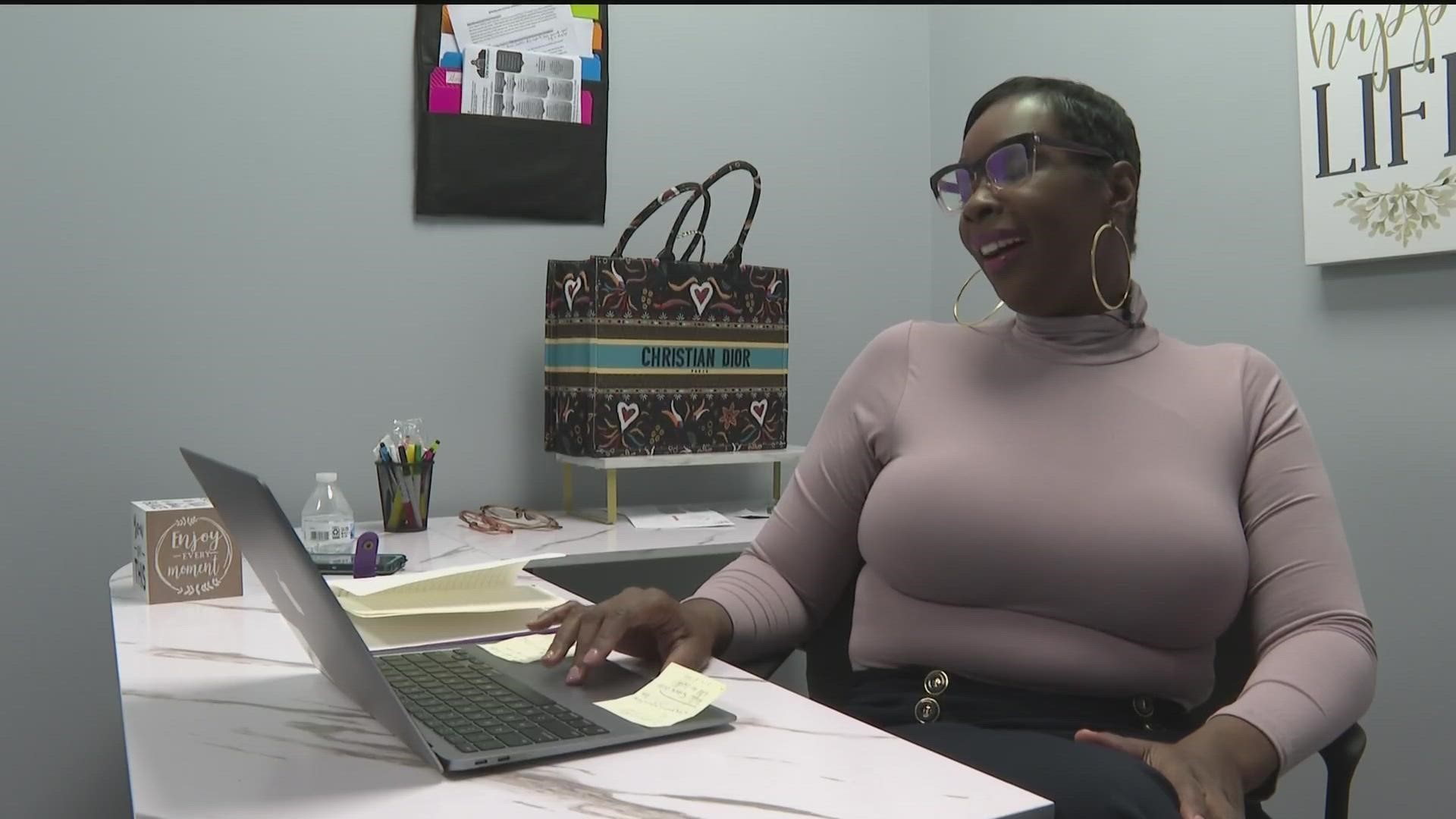DECATUR, Ga. — More than 19 million people in the United States struggle with depression and Black Americans are overrepresented in that number, according to Mental Health America.
Mareba Lewis opened Ellie Mental Health’s Decatur location on Feb.1 and a new Sandy Springs facility opened its doors this week. She wants to reduce the stigma of getting help in the Black community and see more therapists of color in the field.
Becoming a therapist is personal for Lewis.
“Clearly, I've been Black all my life. I can honestly say that growing up in Florida, I can't think of anyone who had a therapist," Lewis said.
Her interest in mental health started traveling the world in the military and realizing the one thing everything wants is to be happy.
“Since COVID and sometimes now it’s sexy for some people to say, ‘I have a therapist,’ but there still is a huge stigma related to that," Lewis said.
Statistics from WebMD show that in 2018, 18% of white Americans seek help for mental health, while less than 9% of Black Americans do.
“Other cultures have seen their peers, their grandparents go to therapy, and it's not taboo," Lewis said. "In the Black community, if you have a therapist 20 years ago, they would have called you crazy.”
CDC statistics show suicide is the third leading cause of death for Black men ages 15 to 24.
Lewis believes representation of therapists and psychiatrists in the Black community is crucial.
“We want to reach out to someone who looks like us," Lewis said. "If someone in the Black community starts to seek therapy and can't find anyone that looks like them, then they may stop the process and they may never start it back up again.”
Lewis encourages others in the Black community to consider a career in the mental health field.
“The best thing is mentorship, and by that, reach out," Lewis said. "If you're thinking about being a therapist, reach out. We as therapists also, we have to do something as well to let other brown and Black people know that, hey, this is actually a real thing.”
According to an American Psychological Association report, 86% of psychologists were white, while only 4% were Black in 2015.
Lewis said she plans on opening another mental health facility in Midtown Atlanta this fall.

